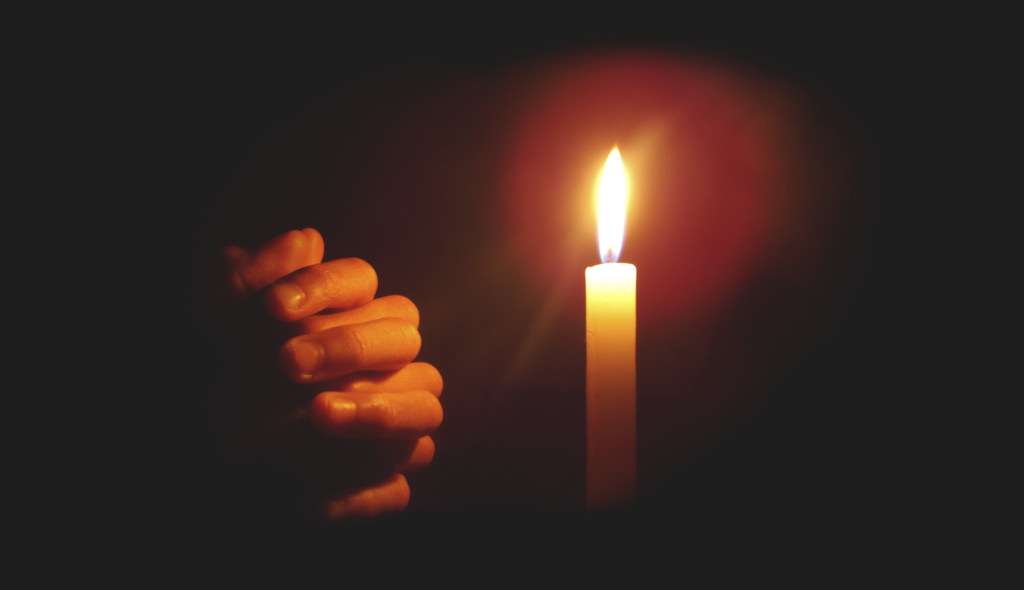20 Powerful Prayers For Victims Of Abuse To Inspire Hope
Prayers for victims of abuse can provide solace during difficult times. Find spiritual guidance and support through these meaningful prayers.
Author:Suleman ShahReviewer:Han JuNov 21, 20243.4K Shares182K Views

Abuse leaves profound scars on the mind, body, and spirit. It disrupts a sense of safety, trust, and self-worth, creating challenges that can feel insurmountable. For victims of abuse, prayer can be a powerful tool for healing, offering a way to connect with God or a higher power to seek comfort, guidance, and renewal. It’s not just a spiritual practice; it’s a refuge where one can process pain, find strength, and cultivate hope for a better future.
This article showcases the transformative role of prayer in the healing journey of abuse survivors. It provides prayerstailored to specific needs, such as emotional recovery, physical healing, and rebuilding trust.
The Role Of Prayer In Healing From Abuse
Abuse survivors face emotional, physical, and spiritual wounds that require time and compassion to heal. While professional therapyand supportive relationships are vital, prayer offers a unique avenue for processing emotions, seeking peace, and rediscovering strength.
1. A Source Of Comfort
Prayer allows survivors to open their hearts to God or a higher power, voicing their pain, fears, and depressionin a safe and nonjudgmental space. It provides reassurance that they are not alone, even in their darkest moments. Many survivors find comfort in the belief that their burdens are shared and that they are held in divine love.
2. A Path To Emotional Healing
For many, prayer serves as a way to release the anger, sadness, and confusion that often accompany abuse. Expressing these emotions through prayer can help lighten the emotional load and create space for healing. It also helps foster self-forgivenessand self-compassion, both of which are essential for recovery.
3. Strengthening Faith And Resilience
Prayer can be a grounding practice that helps survivors reconnect with their faith or spiritual beliefs. It reinforces the notion that they are strong, worthy, and capable of overcoming challenges with divine guidance. For those who may feel lost or disconnected from their spiritualitydue to abuse, prayer can be a gentle way to rebuild that connection.
Prayers For Healing
1. Prayer For Physical Healing
"Dear God, my body has endured pain and suffering. Please place Your healing hands upon me, restore my strength, and help me care for myself with love and kindness. Amen."
2. Prayer For Emotional Healing
"Lord, my heart feels broken and heavy with sadness. Please heal my emotional wounds and replace my pain with Your peace. Let Your love fill the voids created by hurt. Amen."
3. Prayer For Healing From Trauma
"God, I carry the weight of trauma in my heart and mind. Please help me release this burden and find freedom in Your grace. Heal me completely and give me peace. Amen."
4. Prayer For Restorative Sleep
"Lord, my nights are filled with fear and restless thoughts. Please grant me peaceful sleep and allow my mind and body to be restored each night. Amen."
5. Prayer For Spiritual Healing
"Dear Father, I feel distant from You because of my pain. Help me reconnect with You and trust in Your love. Heal my spirit and renew my faith. Amen."
Prayers For Strength
6. Prayer For Courage
"Lord, I feel weak and afraid. Grant me the courage to face each day and the challenges it brings. Strengthen my heart and remind me that I am never alone. Amen."
7. Prayer For Perseverance
"God, I feel weary and overwhelmed. Please give me the strength to keep going, even when the path feels impossible. Help me to lean on You for support. Amen."
8. Prayer For Resilience
"Father, my spirit feels broken. Please help me rebuild my strength and resilience, so I can rise above my circumstances and find joy again. Amen."
9. Prayer For Protection
"Lord, surround me with Your love and protection. Keep me safe from harm and let me feel secure in Your presence. Grant me the strength to overcome my fears. Amen."
10. Prayer For Inner Peace
"Dear God, my soul feels unsettled and anxious. Please calm my spirit and fill me with Your peace. Let me find comfort in Your love and guidance. Amen."
Prayers For Comfort
11. Prayer For God’s Presence
"Father, I feel lonely and lost. Please remind me that You are always near, walking with me through every trial. Comfort me with Your loving presence. Amen."
12. Prayer For Releasing Pain
"Lord, I carry so much pain in my heart. Help me release it into Your hands and trust You to heal the parts of me that feel broken. Amen."
13. Prayer For Rest In God’s Care
"Dear God, I surrender my burdens to You tonight. Let me rest in Your care, knowing that You are watching over me and holding me close. Amen."
14. Prayer For Love And Support
"Lord, bring people into my lifewho will love and support me unconditionally. Let me feel their care and kindness as an extension of Your love. Amen."
15. Prayer For Hope
"God, when I feel hopeless, remind me of Your promises. Help me see light in the darkness and trust that better days are ahead. Amen."
Prayers For Justice And Forgiveness
16. Prayer For Justice
"Dear Lord, I long for justice and fairness in my situation. Guide those in authority to act with wisdom and integrity. Grant me patience as I wait for resolution. Amen."
17. Prayer For Forgiving Others
"God, my heart is heavy with anger and resentment. Help me find the strength to forgive those who have wronged me, not for their sake, but for my healing. Amen."
18. Prayer For Self-Forgiveness
"Father, I struggle to forgive myself for the ways I feel I’ve fallen short. Remind me of Your mercy and grace. Help me to accept Your forgiveness and let go of my guilt. Amen."
Prayers For Guidance And Renewal
19. Prayer For Clarity
"Lord, I feel confused and unsure of what steps to take next. Please guide my thoughts and decisions. Show me the path You have prepared for me and help me trust in it. Amen."
20. Prayer For New Beginnings
"Dear God, I am ready to start a new chapter in my life. Help me leave the pain of the past behind and embrace the hope and possibilities of the future. Amen."
How To Support Abuse Survivors Spiritually
1. Offer Compassionate Prayer
Pray for the survivor, asking for healing, peace, and strength. Share prayers that affirm their worth and dignity but avoid pressuring them to join if they are not ready. Offering these prayers fosters peace of mind and heart, creating a supportive environment filled with compassion and understanding.
2. Be A Patient Listener
Create a safe space where the survivor feels heard. Listen without judgment or offering unsolicited advice. Spiritual healing often begins when survivors feel validated and supported in their emotions.
3. Share Uplifting Scriptures Or Affirmations
Offer encouraging scriptures, quotes, or affirmations that focus on hope, healing, and strength. Examples like "The Lord is close to the brokenhearted" (Psalm 34:18) can provide comfort and reassurance.
4. Introduce Gentle Spiritual Practices
Encourage survivors to explore practices like journaling, meditation, or gratitude exercises. These can serve as a bridge to reconnecting with their spirituality in a non-threatening way.
5. Provide Resources For Spiritual Growth
Recommend books, podcasts, or videos focused on healing, hope, and faith. Resources that address spiritual resilience and overcoming trauma can offer additional guidance and comfort.
6. Encourage Connection With A Faith Community
If the survivor is open to it, suggest faith-based support groups or communities where they can connect with otherswho understand their experiences. Fellowship can help rebuild trust and provide a sense of belonging.
7. Offer To Pray Together
If the survivor feels comfortable, pray with them. Group prayer can foster a sense of unity and shared strength. Tailor your language to affirm their courage and dignity, ensuring they feel respected and not pressured.
8. Respect Their Boundaries
Abuse survivors may have complex feelings about spirituality or religion. Respect their boundaries and avoid imposing your beliefs or suggesting prayer or faith as a "cure-all." Allow them to guide their own spiritual journey.
9. Remind Them Of Their Worth
Incorporate gentle reminders of their value and worth as a person. Affirmations like "You are loved," "You are not alone," or "You are strong" can reinforce positive beliefs and help rebuild their confidence.
10. Support Them In Finding Professional Help
Encourage the survivor to seek help from spiritual counselors, therapists, or clergy experienced in trauma recovery. These professionals can provide tailored guidance that blends emotional and spiritual care.
A Note On Sensitivity
When supporting abuse survivors spiritually, the key is empathy and patience. Avoid any actions or words that might unintentionally cause further distress. Your role is to provide a nurturing environmentwhere healing, both spiritual and emotional, can flourish.
FAQs
Can Prayer Help Me Recover From Trauma?
Yes, prayer can be a helpful part of the recovery process. It provides a safe space to express emotions, seek comfort, and find spiritual strength. While it’s not a substitute for professional therapy, prayer complements other healing practices.
Is Forgiveness Always Necessary In Prayer For Abuse Survivors?
Forgiveness is a deeply personal journey and not always immediate or necessary. It should never be forced but can be a freeing step for some survivors as they heal.
How Can I Pray If I Feel Angry Or Lost?
Praying honestly about your emotions is powerful. Share your anger, confusion, or pain with God or your higher power. Prayer is about connection, not perfection.
What If I’m Not Religious But Still Want To Pray?
Prayer doesn’t have to be tied to a specific religion. It can be a personal practice where you reflect, meditate, or express gratitude and hope in your own way.
Can Prayer Help Someone Who Is Still In An Abusive Situation?
Prayer can provide strength and clarity, but it’s important to also seek practical help, such as support from trusted individuals or organizations, to ensure safety.
Final Thoughts
For survivors of abuse, prayer can be a sanctuary of peace, strength, and healing. It is a deeply personal practice that allows them to voice their struggles, find comfort, and reconnect with hope. While the journey to healing is complex and multifaceted, prayer offers a consistent and unwavering source of support.

Suleman Shah
Author
Suleman Shah is a researcher and freelance writer. As a researcher, he has worked with MNS University of Agriculture, Multan (Pakistan) and Texas A & M University (USA). He regularly writes science articles and blogs for science news website immersse.com and open access publishers OA Publishing London and Scientific Times. He loves to keep himself updated on scientific developments and convert these developments into everyday language to update the readers about the developments in the scientific era. His primary research focus is Plant sciences, and he contributed to this field by publishing his research in scientific journals and presenting his work at many Conferences.
Shah graduated from the University of Agriculture Faisalabad (Pakistan) and started his professional carrier with Jaffer Agro Services and later with the Agriculture Department of the Government of Pakistan. His research interest compelled and attracted him to proceed with his carrier in Plant sciences research. So, he started his Ph.D. in Soil Science at MNS University of Agriculture Multan (Pakistan). Later, he started working as a visiting scholar with Texas A&M University (USA).
Shah’s experience with big Open Excess publishers like Springers, Frontiers, MDPI, etc., testified to his belief in Open Access as a barrier-removing mechanism between researchers and the readers of their research. Shah believes that Open Access is revolutionizing the publication process and benefitting research in all fields.

Han Ju
Reviewer
Hello! I'm Han Ju, the heart behind World Wide Journals. My life is a unique tapestry woven from the threads of news, spirituality, and science, enriched by melodies from my guitar. Raised amidst tales of the ancient and the arcane, I developed a keen eye for the stories that truly matter. Through my work, I seek to bridge the seen with the unseen, marrying the rigor of science with the depth of spirituality.
Each article at World Wide Journals is a piece of this ongoing quest, blending analysis with personal reflection. Whether exploring quantum frontiers or strumming chords under the stars, my aim is to inspire and provoke thought, inviting you into a world where every discovery is a note in the grand symphony of existence.
Welcome aboard this journey of insight and exploration, where curiosity leads and music guides.
Latest Articles
Popular Articles

